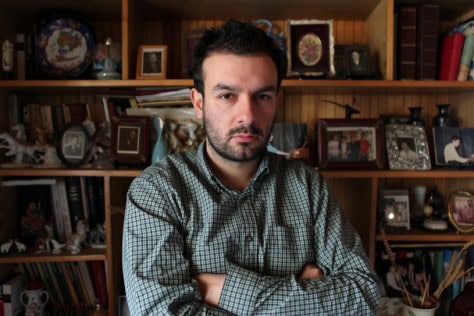It’s obvious that these Nepali villagers have been anticipating our arrival for weeks in advance. Ecstatic children are jumping all over us, buzzing like American kids on a sugar high. Parents have prepared flower displays that feel like a Himalayan-style Rose Parade. Homes are decorated as if royalty were coming to visit. And although the poverty of this third-world village is evident, the people don’t exude desperation. Not today—because on this vibrant Nepali afternoon, a group of Westerners from a small foundation are coming to help the local children keep their educational dreams alive.
In Nepal, you don’t have to be Bill Gates, Bono or Angelina Jolie to make a difference. With the average salary at $150 a year, the American dollar goes a long way. And while the strength of our currency can net us a fancy tourist gift on the cheap, it can also fund a student’s education for many years, helping a child to avoid the often horrible alternatives. Each year, over 7,000 Nepali children are sold into sex slavery, often because their parents can’t afford to feed the family, much less pay the $50 cost needed to keep each kid in school. It’s a powerful realization that the price of a posh dinner in America can actually save one of these children’s lives, and that’s the driving ethos behind the Madhav Ghimire Foundation, a small but mighty organization that awards scholarships to families who can’t afford their children’s education.
With a budget of just $10,000 per year, Madhav Ghimire is not going to cure global poverty. But in Chitwan, the little village we’re visiting in order to award four new scholarships, it’s a very big deal indeed.
Dr. Jeffrey Kottler first came to this village in 2001 with his student Kiran Regmi, and was astonished by the fact that “children were being sold to brothels because their parents could not afford the modest costs to keep them in school.” He vowed to return with funds to help these families. Since then, the foundation has sponsored over 40 girls, keeping them in school and away from the brothels, where many of them would likely have contracted AIDS. It is predicted that AIDS will become the leading cause of death for Nepalis ages 15–49 within the next decade. This, combined with low female literacy rates (76% of females age 16 and older in Nepal were illiterate in 2003), makes the efforts to keep these young women in school even more vital. “When you think about how far the American dollar goes in Nepal, it is pretty amazing,” Kottler says. “When I originally visited the village and realized how little money it takes to keep these young girls in school and away from brothels, I knew something had to be done.”
Regmi, who lives in Nepal as one of only a few female obstetricians in the country, manages the scholarship selection and home visits, while Kottler organizes the one-to-one fundraising campaign back in America. “It’s mostly donations from students, family and friends that keep the organization going,” says Kottler, stressing that 100% of all proceeds fund the students’ scholarships. Perhaps what is most inspiring about Kottler and Regmi’s efforts is that the duo has little, if any, past experience in international aid work. They don’t have social-justice degrees, NGO experience or well-connected “friends” in Washington. They simply noticed an injustice and realized that with a modest effort, they might make a significant impact.
When asked if they plan on raising enough money to have an office, retain an official executive director and perhaps fuel a more refined fundraising campaign, they tend to hesitate. “There is a certain degree of authenticity and control with keeping it small,” says Kottler. “If we got to the point where our overhead starts dictating our ideals, it compromises the reason we started this in the first place.”
While an expanded Madhav Ghimire might do wonders for other Nepali villages, the foundation is still a testament to the effectiveness of working on a small scale. Movements like Kottler’s are growing all over the U.S., especially in the wake of Muhammad Yunus’ Nobel Prize for his work on the concept of “microfinance.” Matthew and Jessica Flannery have followed this lead with their site, Kiva.org, which enables individuals to help finance a micro-entrepreneur in the developing world. Anyone willing to lend as little as $25 can fund a budding carpenter in Kenya or a baker in Tajikistan.
With a similarly small-scale ambition, Los Angeles’ Blake Mycoskie started Toms: Shoes for Tomorrow based on a traditional Argentinean shoe design. Every time he sells a pair of shoes in North America, he donates a pair to a South American child in need. He travels to Argentina annually to perform a “shoe drop” that makes good on his promise.
Just as a flatter, more interconnected world makes international economic opportunities more attainable for the average Westerner, perhaps the barrier is also being lowered for small aid efforts such as these. If that’s the case, some degree of international humanitarian work is within everyone’s reach. As Margaret Mead once said, “Never doubt that a small group of thoughtful, committed citizens can change the world. Indeed, it is the only thing that ever has.”
 Q&A with Larry Gus
Q&A with Larry Gus We Own the Night: The Edison
We Own the Night: The Edison
No Comments